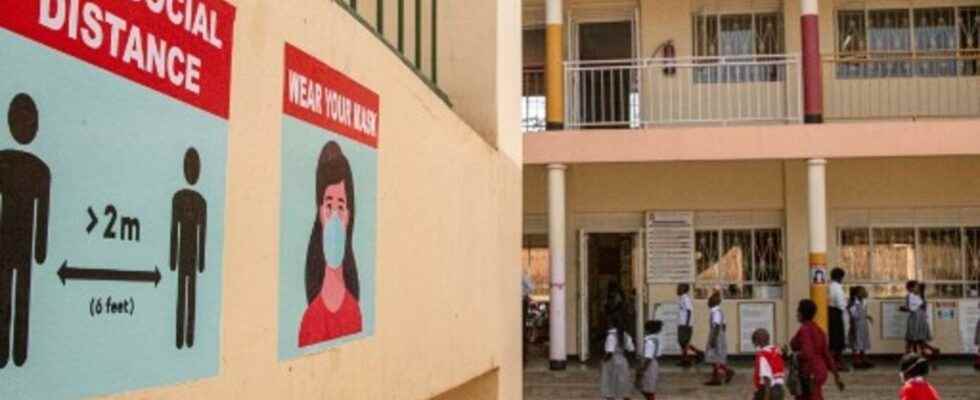In Uganda, some 15 million students returned to school on Monday, January 10, after one of the longest school closures ever seen due to the pandemic. For almost two years, only the most privileged students had access to distance learning, the others had to stay at home.
In this school in the working-class district of Nsambya in Kampala, 12-year-old Jane, wearing a red and black checkered uniform and satchel on her back, finds her classroom for the first time since the first confinement in March 2020. ” I am very happy: I missed seeing my friends, learning, playing. I was very sad at home, I had to help sweeping, washing clothes and washing the floor », She confides at the microphone of our correspondent in the Ugandan capital, Lucie Mouillaud.
In the yard, Moses is relieved to see his four children return to the school benches. During this period of closure of the classes, the father of the family tried as best as possible to maintain their knowledge: “ In the morning, I gave them homework when I left for work, and in the evening, I sat with them to correct them. I tried to keep them busy so that they stay as active as possible », He says.
► Read also: Almost two years without school, young Ugandans wandering
In the slum of Nsambya, most children had no access to online lessons or television, says Joshua Bufamengo, one of the teachers. The teacher is already observing the consequences of closing schools. ” We were not able to accompany the children during this period except with a few parents who could pay for photocopies, but it was only about 10% of the registrants. Some children haven’t done a single exercise for two years! Some do not even know how to write their first name. ”
Joshua Bufamengo’s classroom is currently half full: many parents, affected by the economic crisis, have warned the teacher that they will not be able to pay their children’s school fees for the start of the school year.
Relieved
A history teacher at a girls’ boarding school in Massaka, south of the capital, is relieved to see schools reopen, even though the country is facing a third wave of Covid. ” People are more aware now of the risks associated with Covid than during the second wave and therefore, we are going to protect ourselves. We must restart the economy and let students go back to school », He affirms. Strict health protocols are in place such as taking temperature at the entrance, masks, gel and a negative Covid test for students over 18 years old.
► Read also: Covid-19: Uganda detects its first cases of the Omicron variant
The first lockdown, in June 2020, resulted in the closure of schools and businesses and put the economy in slow motion. ” The past two years have not been terrible. Some, like me, may have received something from the government. Other teachers were not so lucky. And even in families, it was complicated. The students were tired of their parents and neither could the parents. This gave rise to arguments. So this morning when I went to greet the students, they were so happy! They really wanted to come back to school and learn », Adds the professor.
But after almost two years without lessons, Ochen is worried about the level of some students. “ I wonder if they found the time to study. Most of our students come from rural areas and had to help their parents with the cultivation. Did they help their parents and study at the same time or did they only help their parents? It is not certain. “
For his first lesson, the history teacher resumed his class, started two years earlier, on Uganda’s first railway, to see if the students still remembered it.
Uganda has recorded a total of 153,762 Covid-19 cases for 3,339 deaths, according to official figures as of January 7.
